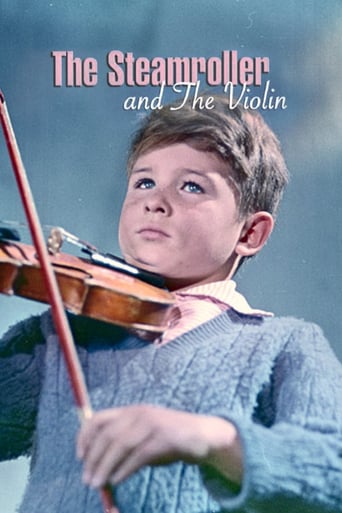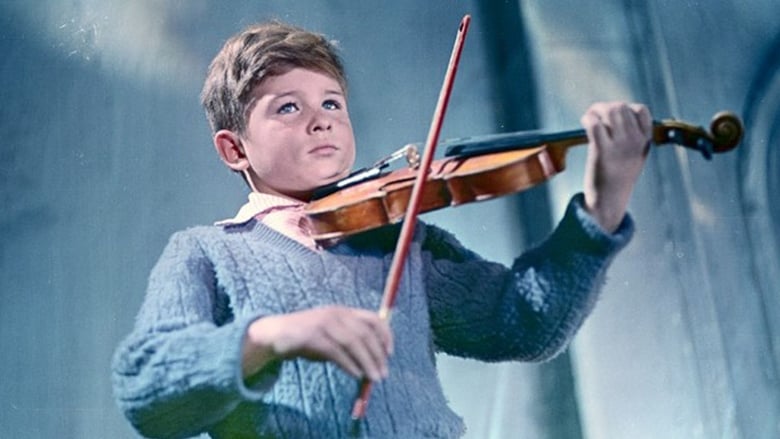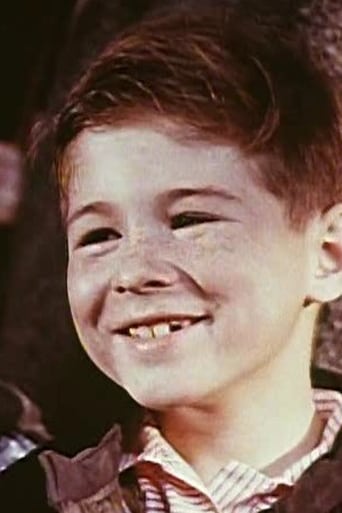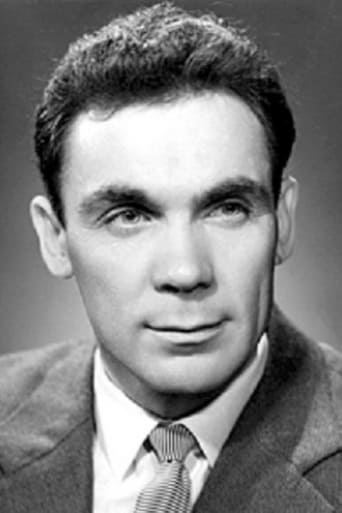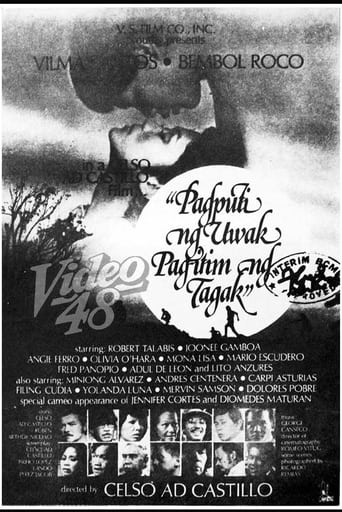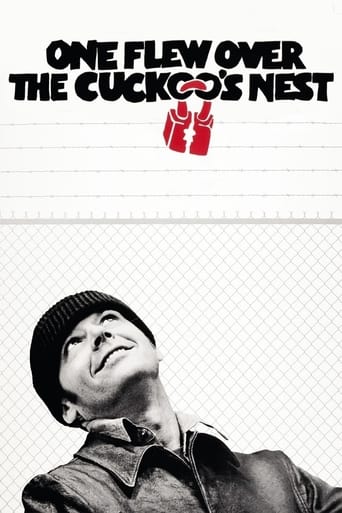The Steamroller and the Violin (1962)
Seven year old Sasha practices violin every day to satisfy the ambition of his parents. Already withdrawn as a result of his routines, Sasha quickly regains confidence when he accidentally meets and befriends worker Sergei, who works on a steamroller in their upscale Moscow neighborhood.
Watch Trailer
Free Trial Channels
Cast


Similar titles
Reviews
Waste of time
Great visuals, story delivers no surprises
It is interesting even when nothing much happens, which is for most of its 3-hour running time. Read full review
This movie feels like it was made purely to piss off people who want good shows
I liked this short film because of the reason that from the middle till the end, it is absolute perfection. The story is about a kid who is a music student and who befriends a Man who rides a Roller. The part worth concentrating is the developing of friendship between the two. PROS:The kid looked apt in his part. The way that he starts to take interest in the work of the man and which led to the development of their friendship is good. The story also ends properly. The introduction of some characters in the starting was also good. They helped in moving forward the film and made the base for the character of the kid.MESSAGE: "Friendship is a beautiful aspect of life."VERDICT: "A recommended watch."
Andrei Tarkovsky's school graduation project, the short film Katok i Skripka or Steamroller and the Violin (1960), by the words of Russian critic Maya Turovskaya, the first rate film, is promise of the things that would come so powerfully in his later films. The most important part of the little film was the joy of showing the beauty and poetry of the ordinary familiar things. The whole world of the film is saturated in colors, filled by myriads of playful solar spots, mirror reflections (yes, mirror - one of the favorite Tarkovsky's images is already presented here), patches of light on water, all living, pulsing, sparkling. Tarkovsky's camera man, the famous cinematographer Vadim Yusov recalls that the idea of the film came to young director after watching the French short film "Red Balloon" (1956) by Albert Lamorisse that ran successfully in the theaters at the time. "Red Balloon" defined the color palette of Tarkovsky's movie. The dominant color for Katok i Skripka was red mixed with yellow and compared to blue in the sky above and in the clothing of two main characters, the young boy playing violin and the grown up man, the driver of a steamroller, who had became his friend, even if for a short time.I'd say that the first Tarkovsky's work is perhaps his most accessible, light, sweet, and warm - the terms we don't usually associate with the master of serious metaphysical, deeply philosophical, even cosmic films that lack conventional dramatic structure. I think it would be a good starting point for anyone interested in Tarkovsky's work. It is interesting to compare Katok i Skripka to Tarkovsky's next work, his first feature, astounding Ivanovo Detstvo (Ivan's Childhood), another film about a boy but completely different from Steamroller and the Violin.For his diploma project, Andrei Tarkovsky won the first prize at the New York Student Film Festival in 1961.
but we all have our parts to play.this is a very fine piece of Soviet culture (communist belief), produced as a children's movie, but definitely for adults too.The symbolic imagery is abundant - the boy violinist trying to impress little girl violinist outside the music rehearsal studio, the girl first refusing the apple he gave her, but when she heard him play, she ate it; the boy being impressed with the mechanics of the steamroller; the steamroller driver longing for the pleasure of music to lighten up his monotonous day, which the boy can provide; the woman steamroller driver longing for the male steamroller driver; the envious street brats teasing the boy violinist; the boy violinist being taught to stand up for a smaller boy by the steamroller driver; the shining new Moscow building appearing behind the old being torn down; the adult, who has lived through the 2nd world war, helping the child over the puddle of water in the street; the adult worker chiding the child for not acknowledging his talents as musician; the well educated mother chiding the child for forgetting his initial promise for the evening and in stead on a whim having promised to meet the steamroller driver for a movie; the steamroller driver being stood up by the boy at the movie theater and the next day he will have to go work somewhere else and never see the boy again; the woman steamroller driver "accidentally" bumping into the male driver at the theater and he reluctantly goes with her and "leaves the music behind"...a very moral story, but with the twist that everybody must do, what they are good at, at any given moment. If the society recognizes a need for musicians, we MUST have musicians, and if we need workers, we MUST have workers. But we can dream, we can always dream, of being someone else - and it is this longing that gives us the desire to do and be. Eg. when the boy is in the practice studio, he is chided for having too much imagination, i.e. he should just fulfill his part, which is interpreting the music to the best of his abilities. But the reason for his lack of concentration is that he is thinking of the girl outside the room, whom he gave the apple. Later, he plays to the musician, and now he is good, now he is concentrated - because in this instant he recognizes the differences between him and the steamroller - he recognizes that he has a responsibility to perform to the best of his abilities, and he does so with knowledge and humility.I don't care for what communism became or was, but there is a valuable lesson learned in this gem of a movie: We must do, what we do best, and do it to the best of our abilities. And, yes, we dream - but we will always dream - of something else, BECAUSE NO ONE CAN DO EVERYTHING THAT HE HIMSELF NEEDS. Thus - in spite of the frame of reference - it becomes a film of how a society is structured. 8/10
A gentle tale of a boy-violinist who is taunted by his peers and misunderstood by the predominantly female figures in his life (mother, music teacher, little girl-violinist), but introduced to the world of "manliness" by a chance encounter with a member of the working class. Both boy and man are enriched by the interchange, which crosses lines of class and age.For fans of Tarkovsky, it is more revealing as a foretaste of visual images in the filmmaker's later work than of thematic development. But as a study of human psychology and an image of life in the former Soviet Union, it is a source of much to contemplate. Since the story line has certain gaps in it (the editing seems more image- than plot-oriented), however, it bears watching through twice (at 43 minutes, this is not a cumbersome task!)

